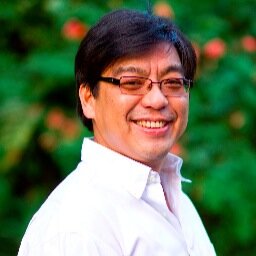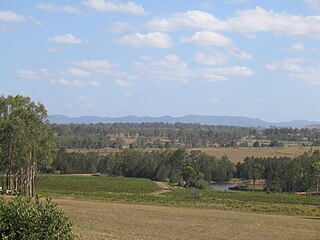Related Research Articles

An environmentalist is a person who is concerned with and/or advocates for the protection of the environment. An environmentalist can be considered a supporter of the goals of the environmental movement, "a political and ethical movement that seeks to improve and protect the quality of the natural environment through changes to environmentally harmful human activities". An environmentalist is engaged in or believes in the philosophy of environmentalism.

The Goldman Environmental Prize is a prize awarded annually to grassroots environmental activists, one from each of the world's six geographic regions: Africa, Asia, Europe, Islands and Island Nations, North America, and South and Central America. The award is given by the Goldman Environmental Foundation headquartered in San Francisco, California. It is also called the Green Nobel.

Seacology is a nonprofit 501(c)(3) charitable organization headquartered in Berkeley, California, that works to preserve island ecosystems and cultures around the world. Founded in 1991, it began with the work of ethnobotanist Paul Alan Cox, who researched tropical plants and their medicinal value in the village of Falealupo in Samoa during the mid-1980s. When the villagers were pressured into selling logging rights to their rainforest in 1988 to build a new school, Cox and his wife offered to help secure funds for the new school in return for an agreement with the villagers to protect their forest. With the help of his friends and family, Cox secured the funds within six months, later earning him and the village chief, Fuiono Senio, the Goldman Environmental Prize for their efforts. Word spread throughout the islands, and with increasing demand for similar projects, Cox, along with Bill Marré and Ken Murdock, decided to form Seacology and expand their work internationally. For the first few years, the organization operated on a volunteer basis. Duane Silverstein became the first employee in 1999, and headquarters were relocated to Berkeley, not far from his residence.

Von Hernandez is a leading environmental activist from the Philippines. He was Executive Director of Greenpeace Southeast Asia (GPSEA) from 2008-2014, where he led the environmental group’s programs and operations in the Southeast Asian region. Prior to that, he served as Campaigns Director for the organization, and was responsible for driving the group’s campaigns in Thailand, Indonesia and the Philippines on a number of issues including climate change, forests, sustainable agriculture and toxics pollution. Currently, he serves as Development Director for Greenpeace International.
Yu Xiaogang is a Chinese environmentalist. He was awarded the Goldman Environmental Prize in 2006 for his efforts in "creating groundbreaking watershed management programs while researching and documenting the socioeconomic impact dams had on local Chinese communities". He is among the six winners of the 2009 Ramon Magsaysay Awards, considered by many to be the Asian equivalent of the Nobel prize. He completed his Master's from the Asian Institute of Technology(AIT) in Thailand and his award citation says:
His interest in the environment was cultivated during a stint in the Yunnan Academy of Social Sciences, and was further deepened when he attended the Asian Institute of Technology, where he earned a master's degree in watershed management.
Yoichi Kuroda is a Japanese environmentalist. He was awarded the Goldman Environmental Prize in 1991 for his campaign against Japan's irresponsible use of tropical hardwoods.

Tuenjai Deetes, formerly Tuenjai Kunjara na Ayudhya, (Thailand) received the Global 500 Roll of Honour in 1992, and was awarded the Goldman Environmental Prize in 1994. Deetes has worked with Thai hill tribes since the early-1970s. She co-founded the Hill Area Development Foundation in 1986. She is a former commissioner of the Human Rights Commission until she resigned that post in July 2019.
Yvonne Margarula is an Aboriginal Australian environmentalist who won the 1998 Friends of the Earth International Environment Award and the 1998 Nuclear-Free Future Award. She also won the 1999 US Goldman Environmental Prize, with Jacqui Katona, in recognition of efforts to protect their country and culture against uranium mining.

Andaman Discoveries (AD) is a tourism social enterprise in Kuraburi, Phang Nga Province, Thailand. It is the continuation of North Andaman Tsunami Relief (NATR), a non-profit organization based in Thailand that provides assistance to tsunami-affected villages in the north Andaman Sea region. Andaman Discoveries has assumed the work of NATR, fostering long-term social, economic, and environmental sustainability and generating viable economic opportunities via training and marketing.
Rosa Hilda Ramos is the second Puerto Rican recipient of the Goldman Environmental Prize, a prestigious award given to grassroots environmentalists from around the world and popularly known as the "Green Nobel prize". A housewife and environmental activist based in her hometown Cataño, Puerto Rico, Ramos received the award for helping save the Las Cucharillas mangrove from development. She also successfully battled the area's main air polluter—the government-owned Puerto Rico Electric Power Authority (PREPA)-- forcing the public utility to dramatically reduce the lever of pollutants discharged into the atmosphere and forcing it to pay a $7 million federal fine.
Maria Gunnoe is an environmentalist who opposes mountaintop removal mining, and is a winner of the Goldman Prize and Wallenberg Medal.
Wadja Egnankou is a scientist from Côte d'Ivoire, a researcher at the University of Abidjan. He received the Goldman Environmental Prize in 1992 for his efforts to protect the mangrove forests of the country.

Green Fins is an approach to sustainable marine tourism activities operating in South East Asia, Caribbean and the Indian Ocean that works with business operators, communities and governments. It helps to implement environmental standards for the diving and snorkelling industry through a code of conduct. The overall aim of the initiative is to mitigate damaging impacts to the marine environment from the marine tourism sector and improve sustainability. The code of conduct is a set of 15 points designed to tackle the most common and detrimental effects of SCUBA diving and snorkelling activities on the habitat in which they operate.
Rashida Bee is an Indian activist from Bhopal. She was awarded the Goldman Environmental Prize in 2004, together with Champa Devi Shukla. The two have struggled for justice for the surviving victims of the 1984 Bhopal disaster, when 20,000 people were killed, and organized campaigns and trials against those responsible for the disaster.
Richard N. Goldman was an American philanthropist who co-founded the Goldman Environmental Prize in 1990 with his wife, Rhoda Goldman. He founded the insurance company Goldman Insurance and Risk Management, and with his wife he established the Richard and Rhoda Goldman Fund in 1951.

Rudi Putra is an Indonesian biologist who received a Goldman Environmental Prize in 2014 for his efforts to combat illegal logging, forest encroachment for palm oil production, and policies that open endangered ecosystems to mining and plantation industries.

Zuzana Čaputová, is a Slovak politician, lawyer, and environmental activist who has been President of Slovakia since 15 June 2019. Čaputová is the first woman to hold the presidency, as well as the youngest president in the history of Slovakia, elected at the age of 45.

Wendy Bowman is an Australian farmer and environmentalist in New South Wales. Thanks to her campaigning, she has been able to prevent the Chinese coal company Yancoal Australia developing coal mining in the Hunter Valley region. She has not only succeeded in keeping her family farm but has protected the local community from the effects of pollution and environmental degradation. In recognition of her efforts, in April 2017 she was one of six environmentalists to be awarded the Goldman Environmental Prize.

Laem Phak Bia is a coastal area in Ban Laem District, Phetchaburi Province, Thailand. The shore is a large, open area of mudflats and salt pans, with some mangrove areas and scrub, tipped by a sand spit. The area is not a national park, the land being privately owned, but it is a favoured location for bird-watchers where they can see a wide variety of shorebirds. The area is administered as Laem Phak Bia Subdistrict, and is home to a village of the same name.
References
- 1 2 Goldman Environmental Prize: Pisit Charnsnoh Archived 5 September 2012 at the Wayback Machine (Retrieved on November 10, 2007)
- ↑ Taking Back the Mangroves with Community Management
| | This Thai biographical article is a stub. You can help Wikipedia by expanding it. |
| | This article about an environmental activist or conservationist is a stub. You can help Wikipedia by expanding it. |